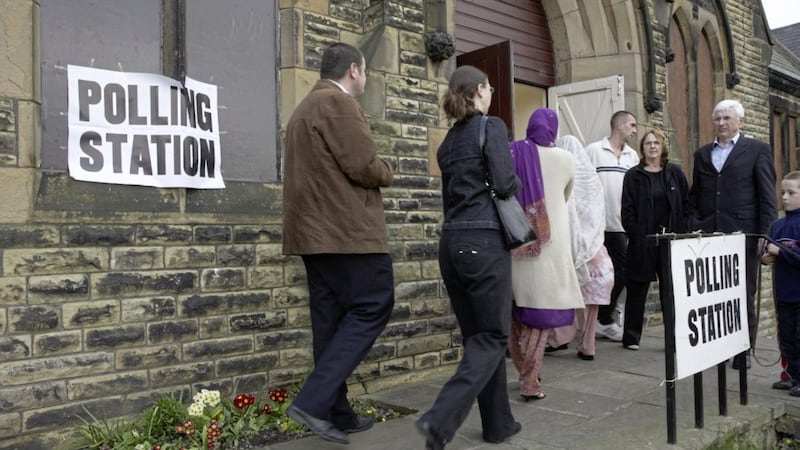IT’S election time. And gone are the days when my three available channels and a broomstick as a remote control meant there was no way to avoid a party-political broadcast.
It meant as much to me as a cardboard licking competition as a child, but undoubtedly this one is as big as it gets.
Depending on your depth of reading, either party victory means very different things, but reading through the sponsored press to find the nuggets of data is all but nailing jelly to a tree. What are the potential outcomes and implications of those outcomes on the UK stock market and economy?
The one to avoid for the UK economy is undoubtedly a hung parliament. Markets don’t like uncertainty and this takes it into the deep depths of uncertainty.
Sterling will weaken and add further inflationary pressure on the UK. As a net importer, any sterling weakening equals price increases to the public, and that, at a time when the public has less disposable income.
Last week, the £2.5 billion UK property fund run by M&G suspended trading due to the impact of Brexit and fear over where Brexit may go after a general election.
This, coupled with the torrid time retail is having, has nudged investors over the line, seeking to extract their capital. This fund for example, suffered a 7.7 per cent drop in the value of its retail commercial property in one month.
Remember that forced selling due to liquidation drives down prices and so funds act to protect investors. They shouldn’t have, to yet many other funds have been forced to ‘gate’ access to investor’s capital.
That’s a prompt for some to say ‘we'll stop Brexit’, and a prompt for others to say ‘get it done’ but I’ve noticed people believe and read what they want anyhow.
A Labour victory will bring uncertainty to the UK and US stock market as investors and corporations don’t really know what to fully expect and certain ‘sponsored’ press back up that uncertainty narrative. The 163 economists and academics signatories who supported Jeremy Corbyn’s ideas for the UK economy favoured his tactics.
His public spending is welcomed and, much studies show it has a significant positive impact on an economy. All parties have vowed to increase public spending but Labour’s is greater and so took criticism.
I remember reading an Economic Policy Institute study in 2012 on public spending, showing 15-45 per cent upward estimates on private sector productivity with the average of 30 per cent being widely accepted. It also shows that public capital produces a greater return than private capital. This study also showed that much of this US financing could be self-financing, all positive for markets.
Indeed the findings suggested strongly that public spending rather than cutting is a far more urgent policy.
Cue Trump, who did just that. The greatest risk to him was inflation which he appeared to keep under control so far, and the economy has been ticking along ‘brilliantly’, as far as he is concerned.
For sure, a Labour victory would have short term negative impacts on sterling and the domestic UK stock market, but in the medium to long term, much depends economically around how well this is managed by the party.
Such a victory would offer up another referendum within three months and bring with it temporary uncertainty, followed by a clear choice of movement, which we would hope would only allow facts to be taken into account to be fair to all.
The UK economy and sterling both understand what is behind the current Conservative government, and so sterling and the UK market respond with upwards movements on any signs of such victory.
Many economists also temper that with a victory handing over the ability to push a ‘hard, or hardish Brexit’, which cannot be good for the Economy and every movement toward it is reflected in markets.
Key to the upside in the UK economy and markets is certainty, an ability to be able to build profitability in a business without worrying of multiple clouds you have to herd. Let’s hope.
:: Peter McGahan is chief executive of independent financial adviser Worldwide Financial Planning, which is authorised and regulated by the Financial Conduct Authority. If you have further questions call Darren McKeever on 028 6863 2692, email info@wwfp.net or visit www.wwfp.net.







